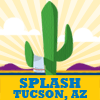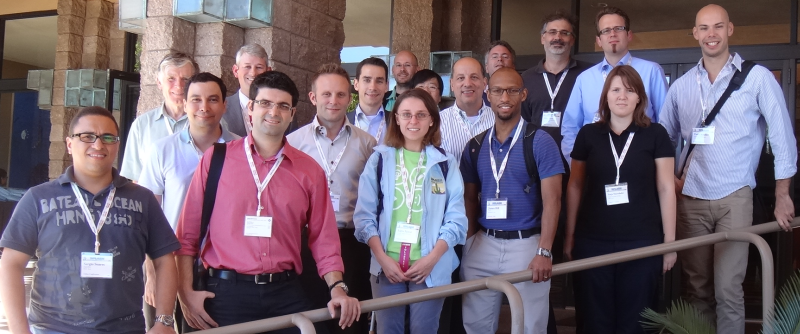The 12th Workshop on Domain-Specific Modeling

|
22nd October, 8:30 AM - 5:00 PM - Salon I (GB) Loew's Ventana Canyon Resort - Tucson Arizona, USA Workshop has now finished. You can view the papers, presentations and group work results. |
Domain-specific modeling (DSM) provides a modern solution to demands for higher productivity by constricting the gap between problem and solution modeling. In the past, productivity gains have been sought through new programming languages. Today, domain-specific modeling languages provide a viable solution for continuing to raise the level of abstraction beyond coding, making development faster and easier.
In DSM the models are constructed using concepts that represent things in the problem domain, not concepts of a given programming language. The modeling language follows the domain abstractions and semantics, allowing developers to perceive themselves as working directly with domain concepts. The models represent simultaneously the design, implementation and documentation of the system, which can be generated directly from them. In a number of cases the final products can be automatically generated from these high-level specifications with domain-specific code generators. This automation is possible because of domain-specificity: both the modeling language and code generators fit the requirements of a narrowly-defined domain, usually inside a single organization.

Workshop format and schedule
The workshop format is a combination of presentations, discussion sessions, and group work on selected topics. This structure was found effective during the past workshops.
Proceedings
The accepted papers will be published both on the workshop website and proceedings in ACM DL.
Accepted Papers
Call for Submissions
Some possible topics for submission to the workshop include:
- Industry/academic experience reports
- Creation of metamodel-based languages
- Empirical studies or assessments that suggest best practices for language design
- Novel approaches for code generation from domain-specific models
- Evolution of languages
- Metamodeling frameworks and languages
- Tools for supporting DSMs